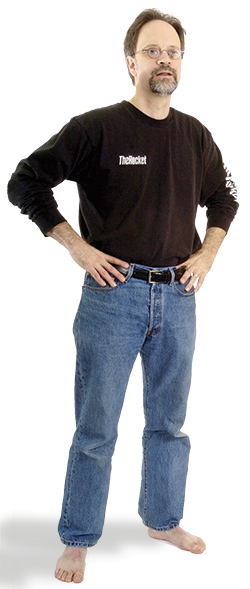Grant Alden, ’82, struck a winning chord with music magazine
 Long before the dark-horse success of the “O Brother, Where Art Thou?” soundtrack, Grant Alden, ’82, knew there was a market for the kind of country music Nashville wasn’t producing. To appeal to that audience, he co-founded No Depression, a self-described “alternative country bi-monthly” magazine, in 1995, after cutting his journalistic teeth at The Daily and the late Seattle-based music magazine the Rocket. He has served as its co-editor and art director ever since.
Long before the dark-horse success of the “O Brother, Where Art Thou?” soundtrack, Grant Alden, ’82, knew there was a market for the kind of country music Nashville wasn’t producing. To appeal to that audience, he co-founded No Depression, a self-described “alternative country bi-monthly” magazine, in 1995, after cutting his journalistic teeth at The Daily and the late Seattle-based music magazine the Rocket. He has served as its co-editor and art director ever since.
A smart, eclectic publication, No Depression was recently named one of the “50 Best Magazines in Print” by the Chicago Tribune. Alden lives in Morehead, Ky., with his wife, Susan Lee Thomas, and their 2-year-old daughter, Maggie.
How many CDs do you have in your house?
You know the “Tribbles” episode of Star Trek? That’s my office, but the Tribbles are CDs. I think I have about 10,000. I am trying, constantly, to winnow the flock. But I get about a hundred a week, on average, and I probably keep 10 percent. It’s daunting.
What brought you to Morehead, Kentucky?
It’s where my wife’s family is. Her dad’s a retired college professor. And for whatever it’s worth, my dad retired from the UW a couple of years ago—Dauril Alden. He taught history, starting in the fall of ’59.
“No Depression” is the title song of Uncle Tupelo’s first album. Did I also read that it was a Carter Family song, written during the Great Depression?
Yes. Not so many people think of that when they see the magazine, because it’s a pretty obscure Carter Family song.
It’s a pretty esoteric name for a commercial magazine. Why did you choose it?
There was really only the briefest of discussions about title options. Did I think the magazine was going to be something? Yes, I did. Did I want to act like that when we started it? No. Because I wanted it to be organic—from the community that it sought to serve. A lot of what we’ve done with No Depression is an extension of what I learned watching Charlie [Cross, ’81] handle Backstreets [the Bruce Springsteen fanzine]. It’s not the same business model at all, but his marketing technique and his ability to stay pretty close to the ground with his readership are things that I’ve learned from.
In an era when success is so often defined in monetary terms, it’s nice to see something that’s done successfully inasmuch as it’s done sustainably. You get to live your passion, and you get to have your 10,000 CDs.
You talk, in college, about how you want to live your life. And then you go and you compromise for the rest of your life. I just don’t compromise very well. And artistic freedom is worth a lot to me. There’s no job I will ever have that will give me this much control. And believe me, I treasure that, because I know it won’t last forever. I treasure what happened at the Rocket, because that was an amazing group of people. I treasure my year writing for The Daily.
Do you wish you’d been able to do more at The Daily?
I do, just because there was so much creative juice there in the late ’70s. I mean, Craig Tomashoff [’82], who was at People magazine the last time I looked—he and I were editors at rival high school papers; John Keister [’80] of KING-TV’s “Almost Live;” Peter Callahan, who’s at the Tacoma News Tribune; Scott North [’01], who’s up at the Everett Herald; Jim Emerson [’80], who was the film critic at the Orange County Register and was co-writer of “It’s Pat: The Movie,” [starring Julia Sweeney, ’82]. That was an ambitious paper when I was there. When I’ve seen it since, it seems like its ambition is more careerist. But they were willing to take risks and devote space to things and experiment with design. That was group of people who meant to go out and do stuff.
There’s this very loose theme of “alternative country” running through No Depression, but you make a lot of surprising choices in terms of whom you cover—surprising either because they’re in the mainstream, like the Dixie Chicks, or because they seem to belong to a category other than country, like the Trills or “Gatemouth” Brown.
[Co-editor] Peter [Blackstock] and I have radically different taste. And that helps. There’s crossover, or we couldn’t do this. But blues and bluegrass are in the magazine, principally, because I wish them to be. Kathleen Edwards and Hem are Peter’s picks. We try not to hold commercial success, or the absence of it, against an artist. If the work’s good, we’re interested.
Is it possible that there will be a hip-hop act covered in No Depression at some point?
I think it’s almost a certainty that there will be a hip-hop act covered at some point.